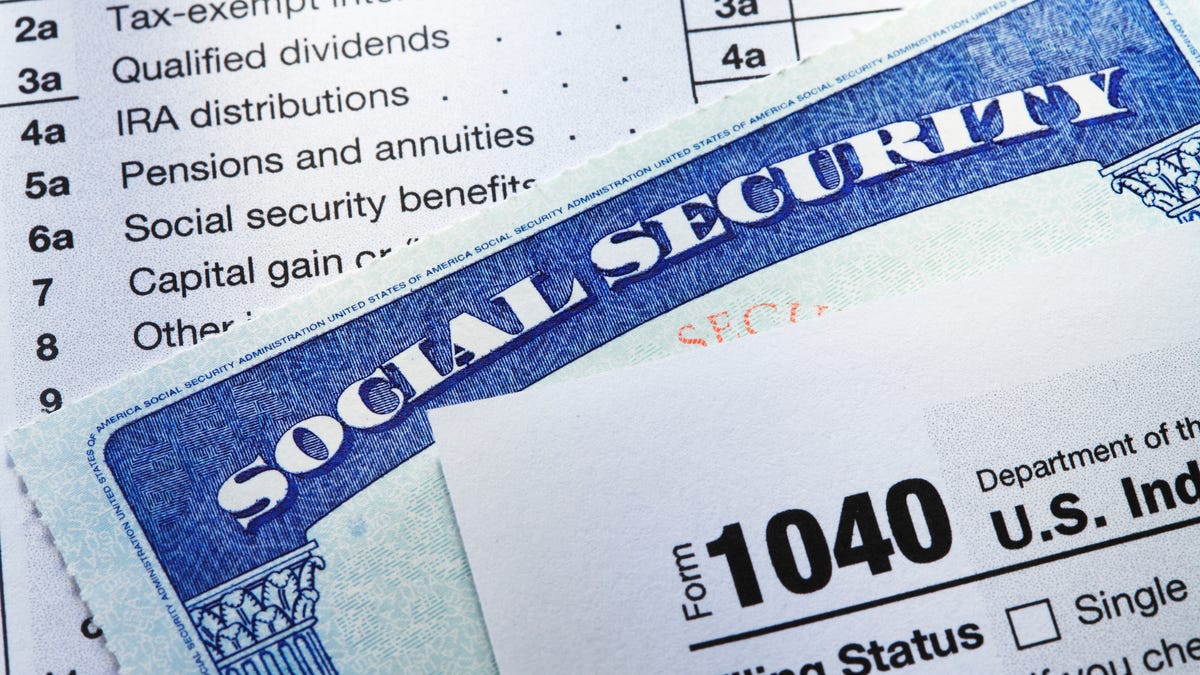
You might not be required to file a tax return as a Social Security benefits recipient, but should you file anyway? As of March 29 this year, the IRS has received more than 90 million tax returns and sent out almost $186 billion in refunds. You could still be eligible for a refund this tax season, if you meet certain qualifications.
Your age, marital status and how much income you earn outside of Social Security benefits all have an impact on whether you need to submit a tax return to the IRS. Even if you aren’t required to file, it might be a good idea if you want to receive refundable tax credits or a refund for income taxes you paid during the year.
We’ll help you find out if you’ll need to file your taxes in 2024. For more, here’s why you want to hold on to that COLA letter you received last year. Also, here’s the maximum amount of Social Security money you can receive each month, how much of a COLA increase you should get and our picks for the best tax software.
How can I find out if my Social Security benefits are taxable?
Your Social Security benefits may be taxable if one-half of your Social Security benefits plus all of your other income is greater than the base amount of your filing status (the base amount for determining tax liability) which is:
- $25,000 for single filers, head of household, or a qualifying surviving spouse.
- $25,000 for married people filing separately who lived apart from their spouse in 2023.
- $32,000 for married couples filing jointly.
- $0 for married people filing separately who lived with their spouse.
Other forms of income include wages, self-employment, interest, dividends and other reported taxable income.
One way to understand whether your benefits are taxable is to consider gross income, which is your total earnings before taxes.
You will need to file a return for the 2024 tax year:
- If you are an unmarried senior at least 65 years old and your gross income is more than $14,700.
- If you are filing a joint return with a spouse who is also 65 or older and your gross income is more than $28,700.
- If you are filing a joint return with a spouse who is under 65 years old and your gross income is more than $27,300.
Another way to understand whether your Social Security benefits are taxable is to look at combined income, which is your adjusted gross income + nontaxable interest + half of your Social Security benefits.
- If you are a single tax filer and your combined income is between $25,000 and $34,000, the SSA says you may have to pay income tax on up to 50% of your benefits.
- If you are a single tax filer and your combined income is more than $34,000, you may have to pay income tax on up to 85% of your benefits.
- If you are filing a joint return and your combined income is between $32,000 and $44,000, you may have to pay income tax on up to 50% of your benefits.
- If you are filing a joint return and your combined income is more than $44,000, you may have to pay income tax on up to 85% of your benefits.
- If you are married filing separately and didn’t live with your spouse last year, your Social Security benefits are taxed as if you were a single filer.
- If you are married and filing separately while living with your spouse you probably will have to pay taxes on your benefits.
On line 6b of Form 1040 or Form 1040-SR, you will report the taxable portion of your Social Security benefits.
Should I file my 2023 taxes even if I’m not required to?
The biggest reason to file a tax return even if you don’t have to is to receive a tax refund.
If you had federal tax income withheld from your pay or if you made estimated tax payments in 2023, you may want to file a tax return this year. You could receive a tax refund of any surplus withholding.
Watch this: 5 Tax Tips For 2024
Another circumstance where filing is encouraged is if you qualify for tax credits that provide you with refunds, including the earned income tax credit, the child tax credit or the child and dependent care tax credit. The earned income tax credit is fully refundable, meaning it goes toward your tax refund if you have no tax liability.
How can I find my Social Security benefit amount for 2023?
The Social Security Administration sends out a Social Security Benefit Statement by mail or online in January with your benefits from the previous year disclosed inside. The information in the statement provides you with the earnings you will disclose in your tax return if you end up filing one.
For more information on Social Security and tax season, here’s how to create an online IRS account.

